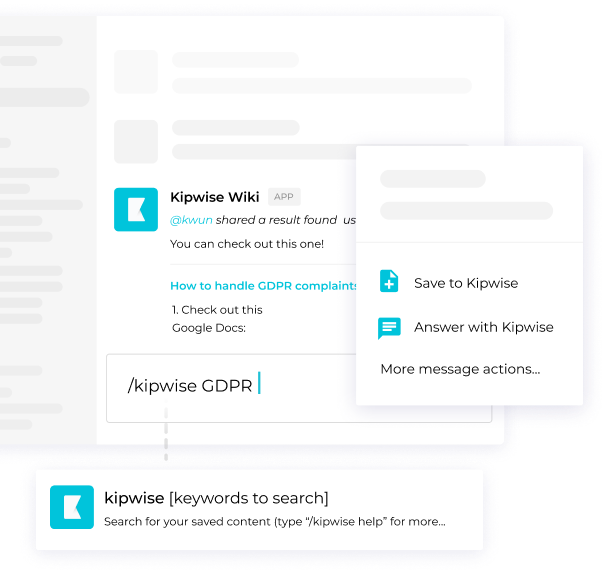Team collaboration and knowledge sharing are becoming increasingly essential to the success of any business. A company business wiki provides an excellent platform to host all the critical information on policy, projects, codes of conduct, workflows, and much more.
A decentralized company database can help revolutionize employee training, collaboration, and knowledge sharing within the workplace. If you are thinking of creating a company wiki, you may need a powerful tool to forge the best knowledge management platform.
What is a Company Wiki Software?
A company wiki software is an interactive platform that you can use to design, write, edit or publish content for your internal wiki. You can securely access the necessary features to store information curated by employees across the different departments.
As you build and manage the company wiki, you may need to determine whether to self-host locally or outsource to a cloud-based SaaS provider.
Self-hosted Company Wiki Vs Cloud-based Company Wiki
A self-hosted wiki means that the information databases are held and maintained in a private server. You may need a dedicated in-house IT team that continually updates and manages the local servers.
Cloud-based company wiki uses software as a Service(SaaS) hosting providers that provide a dedicated team to manage your company's wiki databases. You can host your data in cloud-serves with 24/7 remote access.
Advantages of Setting up a Self-hosted Company Wiki
1. Absolute Control Over Data Use
A self-hosted wiki for your company may place you as the boss over data creation and storage. You can decide how and where to store your organization’s critical data. As a result, you can curate everything according to your specifications and needs. Additionally, you do not have to worry about third-party vendor limits on usage.
2. Enhanced Security Levels
The best self-hosted wiki platforms provide absolute control over the security measures and firewalls you install to protect your data. Only authorized personnel can supervise entries added to the database, limit users, and boot out unwanted guests.
Disadvantages of Self-hosting Your Company Wiki
Despite the advantages that come with self-hosting, there are disadvantages also. The following are some of them.
1. Limited Support
The greatest challenge with self-hosting wiki is that you are responsible for maintaining and updating your database. If you aren’t tech-savvy, it can be challenging to identify and rectify issues on your server.
Open source self-hosting programs may have you sifting through hundreds of forum pages trying to identify the problems on your set.
2. Expensive and Time Consuming to Set Up and Maintain
You may have to buy an independent server to hold your wiki databases. As your company expands and the information generated quadruples, you will be forced to invest in larger off-grid servers to meet the new demands.
Moreover, you have to set up an IT department to maintain and update your server. The SaaS hosting provider, on the other hand, has a dedicated support team to make setting up your company's wiki easier and faster.
Which company wiki platform should you use? The best software needs an intuitive interface, ready-to-use templates, enterprise-grade security, and third-party integration support.
Below are lists of the best self-hosted and cloud-based software you can use.
Best self-hosted Company Knowledge Base Software
1. Wiki.js
Wiki.js is a free, open-source wiki tool running under the Node.js engine. It has an intuitive, sleek interface, and a bundle of features that can help you customize your wiki’s appearance. You can enjoy multiple editing options: HTML editor, WYSIWYG, and WIkiText. It is available in over 40 languages, and you can have your company wiki page appearing in multiple languages.
2. MediaWiki
MediaWiki is arguably the most popular open-source wiki software, with well-known sites such as Wikipedia and Wiktionary. You can enjoy easy writing and editing of your content pieces.
MediaWiki provides multilingual support, allowing you to translate your company’s wiki pages into multiple languages for your diverse workforce. The software is easily customizable, with some users using custom CSS to create the wiki from scratch.
3. DocuWiki
DocuWiki is a PHP-based wiki tool famous for its simple and easy-to-read syntax. The free, open-source software does not require a database. It is easy to maintain, integrate, and backup.
You can enjoy a wide range of extensions and plugins for more functionality beyond the traditional wiki. Additionally, you do not have a cap limit on the number of pages you can create on your company’s wiki.
Best Hosted/Cloud-based Company Knowledge Base Software
If you do not have a dedicated team to set up and maintain your self-hosted wiki, you can opt for a hosted SaaS solution. Here is a list of the best cloud-based wiki tools.
1. Kipwise
Kipwise is a knowledge management platform that helps companies build up their internal knowledge base easily. It offers powerful Slack integration, browser extensions and is integrated with Google Drive, Airtable, Trello and more, so you can save and retrieve team knowledge easily, wherever you need them.
Using its real-time collaborative editor with rich embedding options, your team can edit the same doc at the same time and create visually appealing documentation easily. It also offers built in workflows to streamline your knowledge management processes. For example, you can set designated reviewers for your collections, and Kipwise will remind them to review the content regularly to ensure your knowledge base is always up-to-date and accurate.
For common apps including Gmail, Zendesk and Intercom, the Kipwise Chrome Extension can even suggest relevant knowledge in your knowledge base automatically based on what you are looking at without needing you to search manually.
Key Features:
- Real-time collaborative editor
- Built-in Workflows such as content review flow, internal Q&A flow
- Powerful Integrations with tools such as Slack, Google Drive and more
- AI knowledge suggestions to deliver knowledge to your teammates without needing them to search
2. Confluence
Confluence is a wiki software platform that creates a collaborative edge by bringing content, people, and ideas together. The tool is flexible and customizable, with ready-made templates for use. Your team can co-edit in real-time, with in-line mentions, comments and likes. A personalized feed ensures everyone stays updated with the article stages.
3. Tettra
Tettra is a simple wiki tool that can help document your business policies, protocols, and other critical information in a centralized location. The inbuilt workflows can help new employees to find answers to repetitive questions within your workplace. Take advantage of the ready-to-use templates and easy referencing to create the perfect wiki platform for your company.
Conclusion
Knowledge sharing is a critical piece of the puzzle in today’s collaborative workspace. Creating a company wiki and choosing the right hosting platform is essential for your business.
If you are not ready to manage a self-hosted wiki, you can opt for a hosted knowledge-based software firm such as Kipwise.




